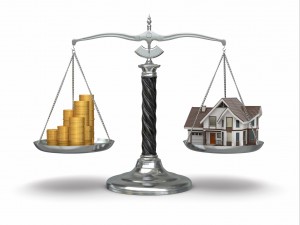Property Taxes – Definition and Their Role in Real Estate Investing
Property Taxes are usually attached to owning real estate. There are several kinds of property taxes that exist and are attached to assets such as Land, Improvements to Land (immovable man-made objects, like buildings), Personal Property (moveable man-made objects) and Intangible Property.
For more information on How to Make Money by Controlling Real Estate with $1 Prior to the Tax Auction, please attend this Free Online Workshop.
Property taxes that relate to Real Estate
Property taxes attached to real estate (also known as Real Property) is basically the combination of Land and Improvements to land taxes. With Real Property you are not only including the land and any property attached to the land, but also the rights and interests that come with it, and this can involve both rental and residential properties.
In order to be considered Real Property and to pay Real Property Taxes, any structures built or any improvements made to the land itself must not be moveable.
However this idea can be slightly skewed as it also includes any natural resources such as oil, gas and timber since these resources are considered part of the land.
How are Real Property Taxes Assessed?
Before properties are put on the market, professional staff property appraisers appraise them in order to determine their fair market value (FMV), which is just an estimate of what the property would sell for in an open market. This figure is usually based on several factors such as age, size and the prior year’s assessed value.
The appraiser also takes into consideration the value of the other houses in the neighborhood.
The local government has assessment rates in place, which are different in every jurisdiction, and this rate is used to calculate an assessed value. The Taxes paid is a percentage of the property’s assessed value based on the rate set by the local government.
These taxes usually stay the same through the years, but are subject to change if, for example, the surrounding neighborhood improves or if any home improvements are done on the property, such as new additions. A homeowner can also dispute any changes in the value on the property tax bill with the agency that issues the property taxes.
What are the Property Taxes used for?
Depending on where you live, property taxes can be used and issued for several things and collected on by several authorities – collections usually itemized on the property tax bill you receive. Taxes can be collected by Counties, Cities, Towns, Villages and Schools, and the government agency receiving the tax then distributes the money to other programs as needed.
Property taxes are usually used to provide upkeep for the surrounding neighborhood. Public areas such as parks use tax money to keep the grounds neat and clean, and to update any equipment.
First responders in the area such as the Property taxes provide revenues to the local government in order for services like the Police and the Fire Department to update equipment and to keep their services running so they can respond when needed.
Property Taxes Auctions
As far as real estate investing is concerned, there is a chance to make money off the idea of delinquent property taxes. In many states, if a homeowner goes 3 or more consecutive years without paying off their property taxes, the county has the right to seize the property and sell it for the unpaid Real Estate taxes at an auction, which anyone can attend, bid and acquire one of the properties for sale.
For more information on How to Make Money by Controlling Real Estate with $1 Prior to the Tax Auction, please attend this Free Online Workshop.
 Subscribe to our podcast
Subscribe to our podcast 

